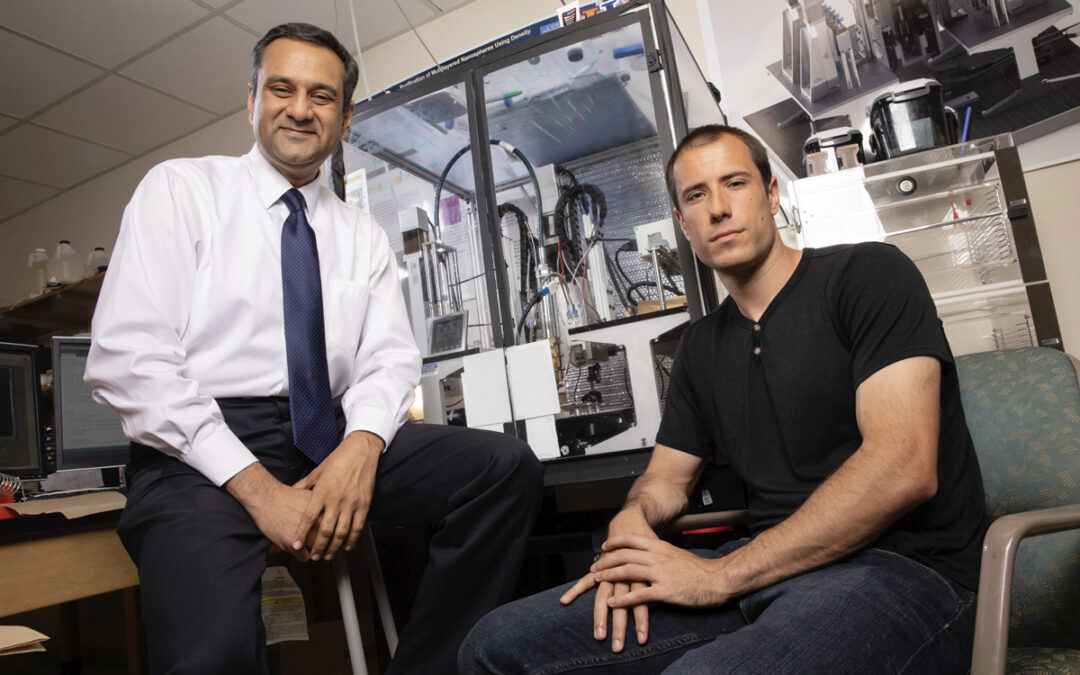Insert caption for feature image here – if not applicable, delete this section.
Researchers from the University of Illinois have created a new kind of 3-D printer capable of producing complex shapes from sugar that can be used to grow biological tissues.
The printer uses a process called free-form printing to create intricate structures from isomalt, the type of sugar used to make throat lozenges, that could not be made with traditional, layer-by-layer 3-D printing.
The end result is a water-soluble scaffold, which could have a variety of applications in fields such as medical research, biomedical engineering and manufacturing.
“This is a great way to create shapes around which we can pattern soft materials or grow cells and tissue, then the scaffold dissolves away,” Rohit Bhargava, a professor of bioengineering and director of the Cancer Center at Illinois, said in a statement.
“For example, one possible application is to grow tissue or study tumors in the lab. Cell cultures are usually done on flat dishes. That gives us some characteristics of the cells, but it’s not a very dynamic way to look at how a system actually functions in the body. In the body, there are well-defined shapes, and shape and function are very closely related.”
The device and the process of free-form isomalt printing were described in a new study published in Additive Manufacturing. “Free-form” means the nozzle essentially “draws” the substance in midair, with the material hardening almost immediately after it is extruded.
Printing with sugar-based substances in this way presents a number of challenges, however. Previous attempts often had problems with the sugar burning or crystallizing. To prevent this, the researchers ensured the material was maintained at a specific temperature and pressure. In addition, the diameter of the nozzle and the speed it moved were also kept stable to ensure the isomalt hardened into a relatively strong structure.
The researchers hope that one day the technology can be used to 3-D-print entire human organs from scratch.
– Written by Aristos Georgiou- Newsweek

